Kumamoto & Aso Kuju
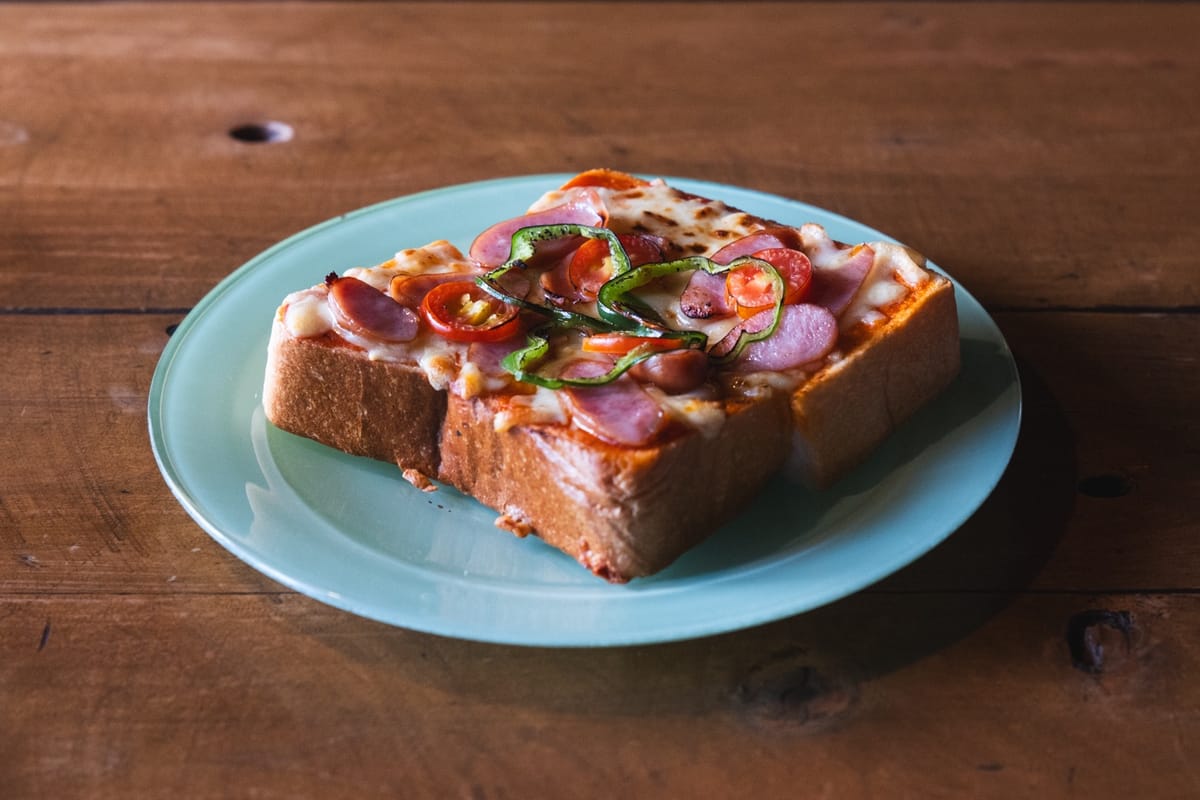
I left Fukuoka in the early morning after I slipped into a little laundromat to clean my sweat-drenched clothing, and do a little writing. As I entered the laundromat, a very little and very old man, took one look at my foreign self, and bustled over saying “service, service!” and poured detergent into my machine for me (they sold it for a fee also). No charge, no tricks, just kindness from father-time's little Japanese brother.
These little gestures keep catching me off guard. They don’t look like much from the outside, but they stick and I'm gathering them like stamps in my passport. Kansha de ippai (feelin' grateful).
I set off from Fukuoka with the map set to avoid tolls and highways. The slower routes and backroads force you into a place. They ask you to slow down and get lost. It feels more real, wherever you are. Here in Japan, it's the small neighborhoods between farmland, the shuttered storefronts, and the ivy and moss covering what once was a many-generation-run ryokan (traditional Japanese Inn). I prefer this to auto-pilot, unless I'm exhausted, then fuck that, get me to my bed.
Kissaten Misadventures
Halfway through the drive I had time to stop off for a little bite to eat. I usually poke around Google Maps until I find something that appeals to my design sensibilities or my curiosities. In this case it was a bit of both. I saw a tiny old-school kissaten (old word for café, probably a lot like we say "diner" and it infers nostalgia). The photos looked like something from a 1970s Colorado cabin. Kanpeki (perfect).
I pulled up a precarious drive, parked, and poked my nose inside. The owner, a sweet round-faced older woman, gestured me to a booth with a polite dozo (please). I wanted to compliment the place, so I said kawaii desu ne (it’s cute, isn’t it). Except I botched the vowel. She heard kowaii desu ne (it’s scary, isn’t it).
So basically, I walked in smiling and told her, “Your café is terrifying.”
Her face froze, alerting me to the possibility of what I'd just done. I quickly corrected, and we both got a good laugh about it. I hope she gets some mileage out of that story with her regulars for a few years. Silly Gaijin (outsiders). That’s how you make friends in Japan: embarrass yourself, recover quickly, then let everyone laugh with you.
I ordered an iced coffee and my first pizza toast. Craig Mod writes about pizza toast all the time, but this was my first. It’s exactly what it sounds like—thick white cloudy bread, a thin bed of red sauce, mozzarella cheese, and pepperoni or green peppers if your luck is strong, and your kissaten is well chosen.
While I ate, a couple of regulars stumbled in and sat near me. We chatted. My broken Japanese. Their scattered English. Somehow it worked. Like pizza toast. We even took a photo together. When I hesitated to hand my camera over, assuming she wouldn’t know how to use it, the owner waved me off. She’d once run a camera shop. Everyone is full of surprises.
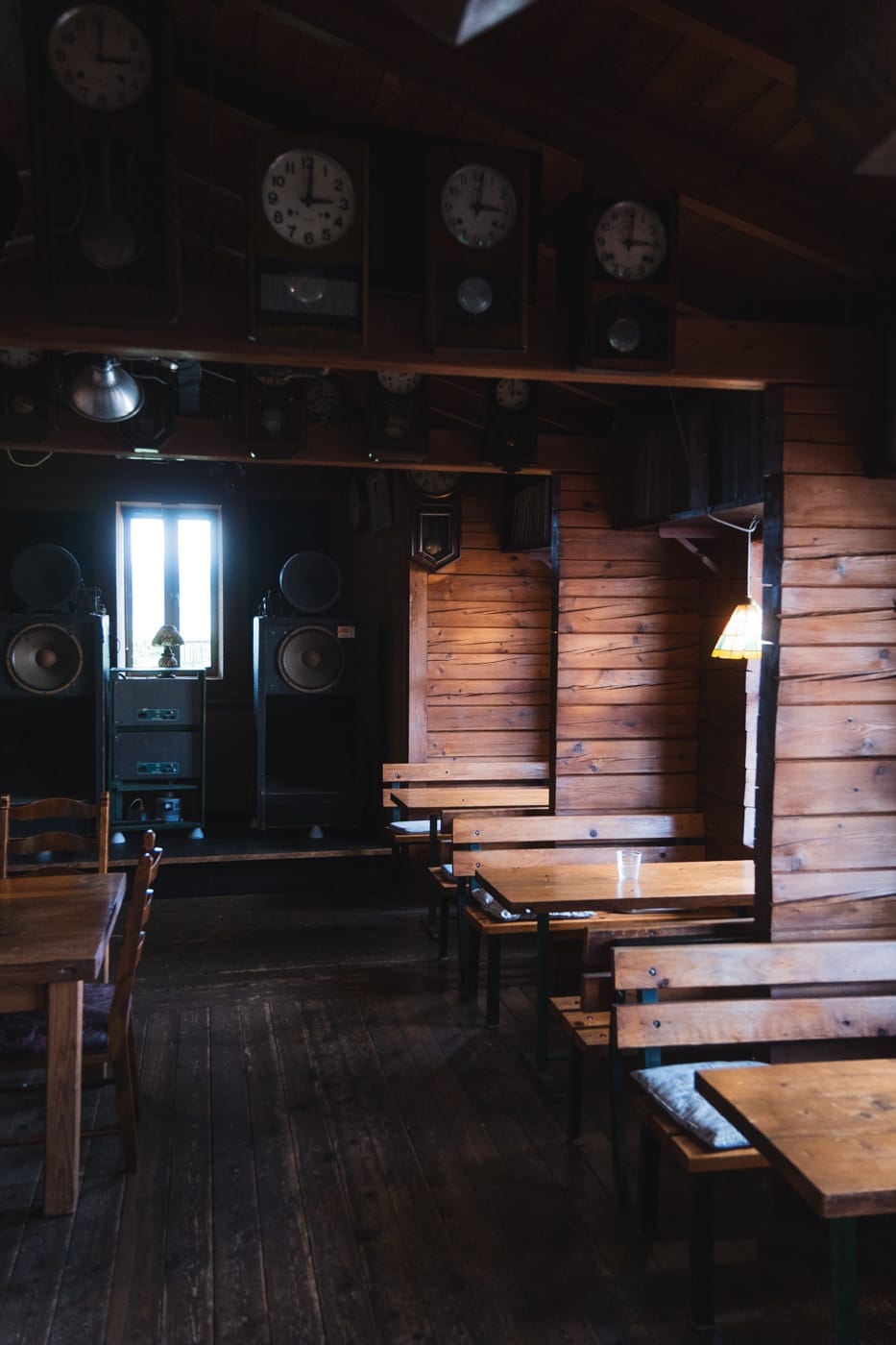
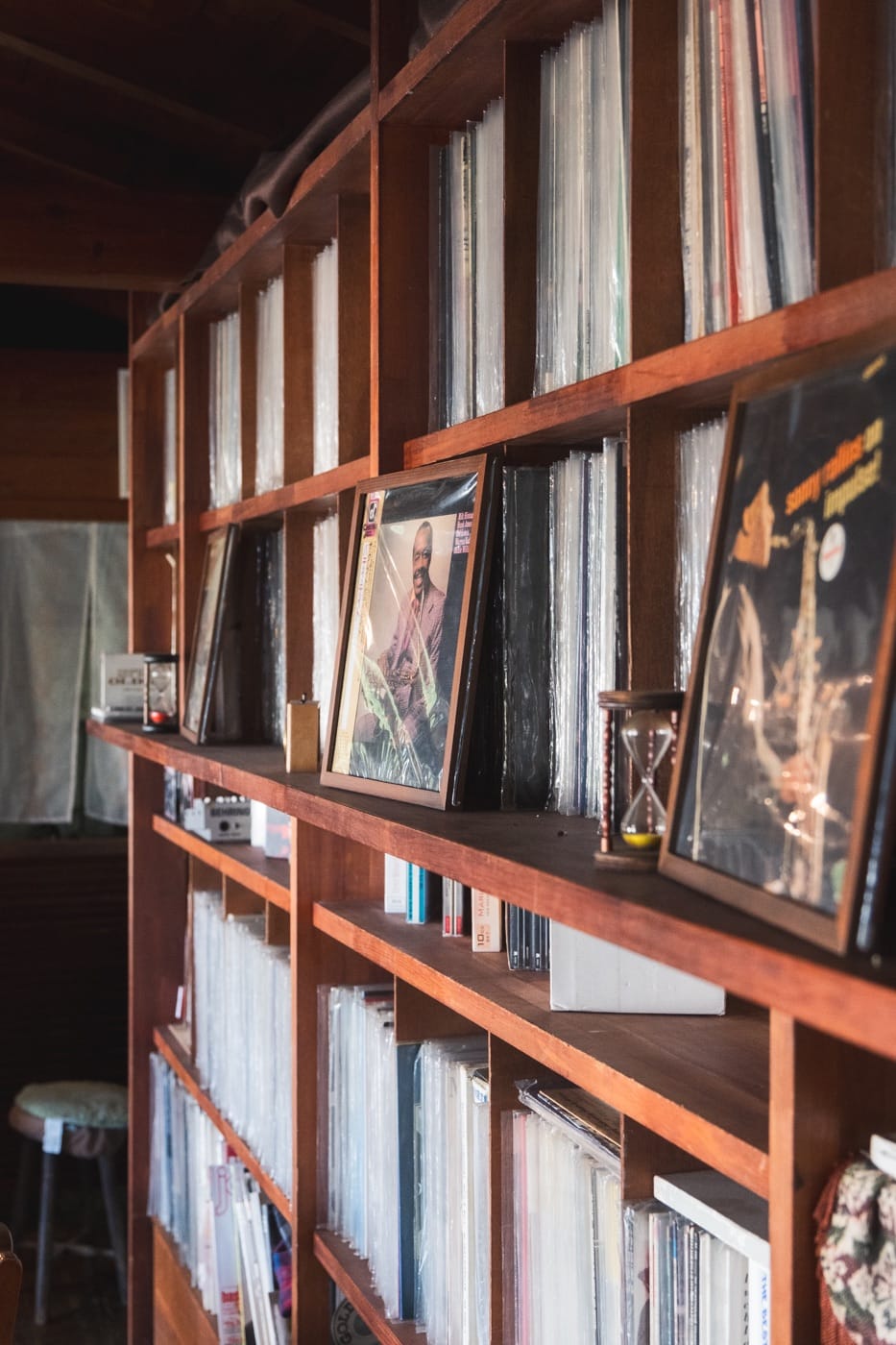

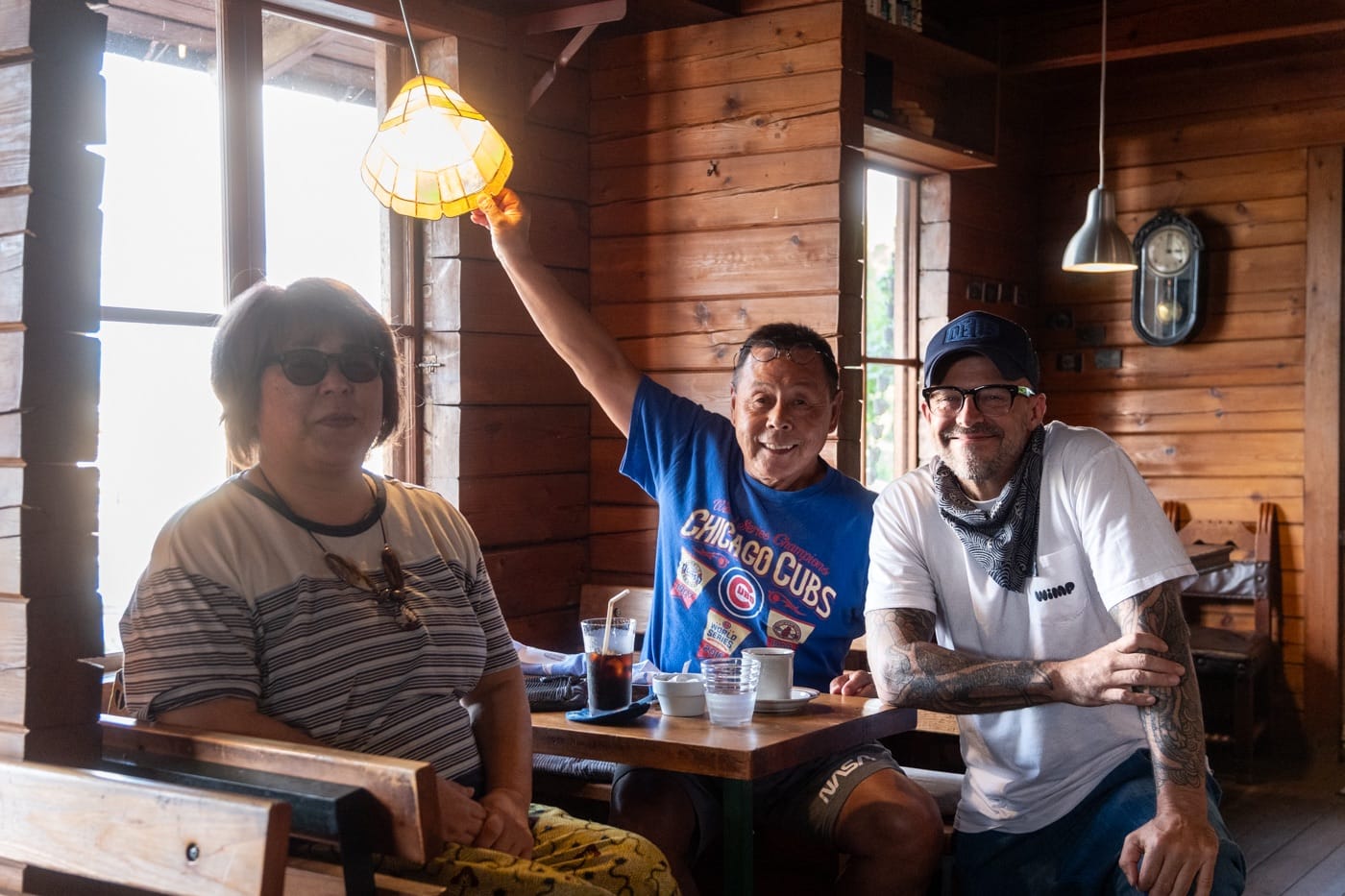
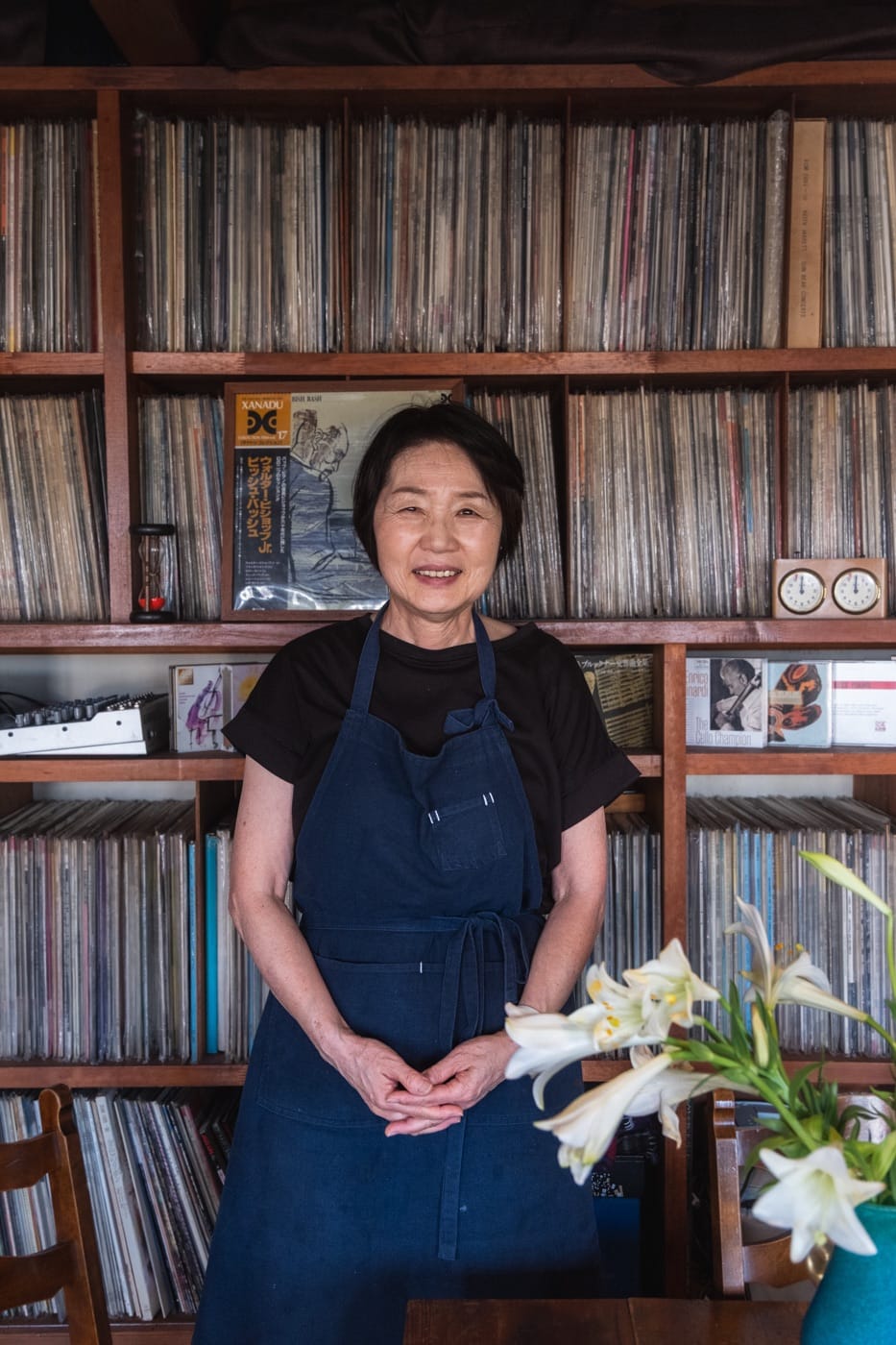
Into the Mountains
The road into Aso-Kuju wound through a lush canyon. Straight cedar trunks shooting skyward. A river braiding around boulders. Silver between green.
Japan is mostly mountains (75%), with little land left to live on. That geography shapes a society. In a tight valley, where you’ll see the same neighbors for life, you learn how to keep things calm—even if only on the surface. In the U.S., if you don’t like your neighbor, you move. Geography bakes culture. Which makes it easier to understand the need for honne (true feelings) and tatemae (public face), interesting Japanese concepts. Pair them with the proverbs below and you start to get a feel for some of what informs the Japanese ethic.
出る釘は打たれる (Deru kugi wa utareru)
The nail that sticks out gets hammered down.
能ある鷹は爪を隠す (Nō aru taka wa tsume o kakusu)
The talented hawk hides its claws.
雉も鳴かずば撃たれまい (Kiji mo nakazuba utaremai)
Even a pheasant won’t be shot if it keeps quiet.
On paper, they sound like calls for conformity. And sometimes they are. But on the ground, I'm surprised. The old man with the detergent didn’t have to help. The café owner didn’t have to laugh at my mistake. The “talented hawk” pulled out her skill the second she picked up my camera. Reality feels looser, more textured, than the proverbs suggest. The tatemae mask cracks open for flashes of honne warmth. Ako would also remind me that the mask can wear you down, like sandpaper on skin. Maybe that's just because I'm not Japanese though? Ako would tell you that these things can wear you down like slow sandpaper.
A moment of meditation with this ephemeral little character. This is a short video, but he was on my arm for a good ten minutes. I've never experienced anything like it.
Aso-Kuju & Kikuchi Falls
The Aso-Kuju range feels like it’s holding you inside a great green bowl. Steep walls of cedar and cypress frame rivers that roll like songs. Kudzu (or it's Japanese cousin) drapes the hillsides like back home in the Blue Ridge. There's more moss here, and the timber is more serious. Probably their bosses are watching.
Kikuchi Falls is a centerpiece. The water is weirdly clear. The kind of thing that makes you want to just lay down in it and float away forever. It's as eery as it is beautiful. Everywhere in this big park, there are layers. Surface and depth. Seems like a theme here.
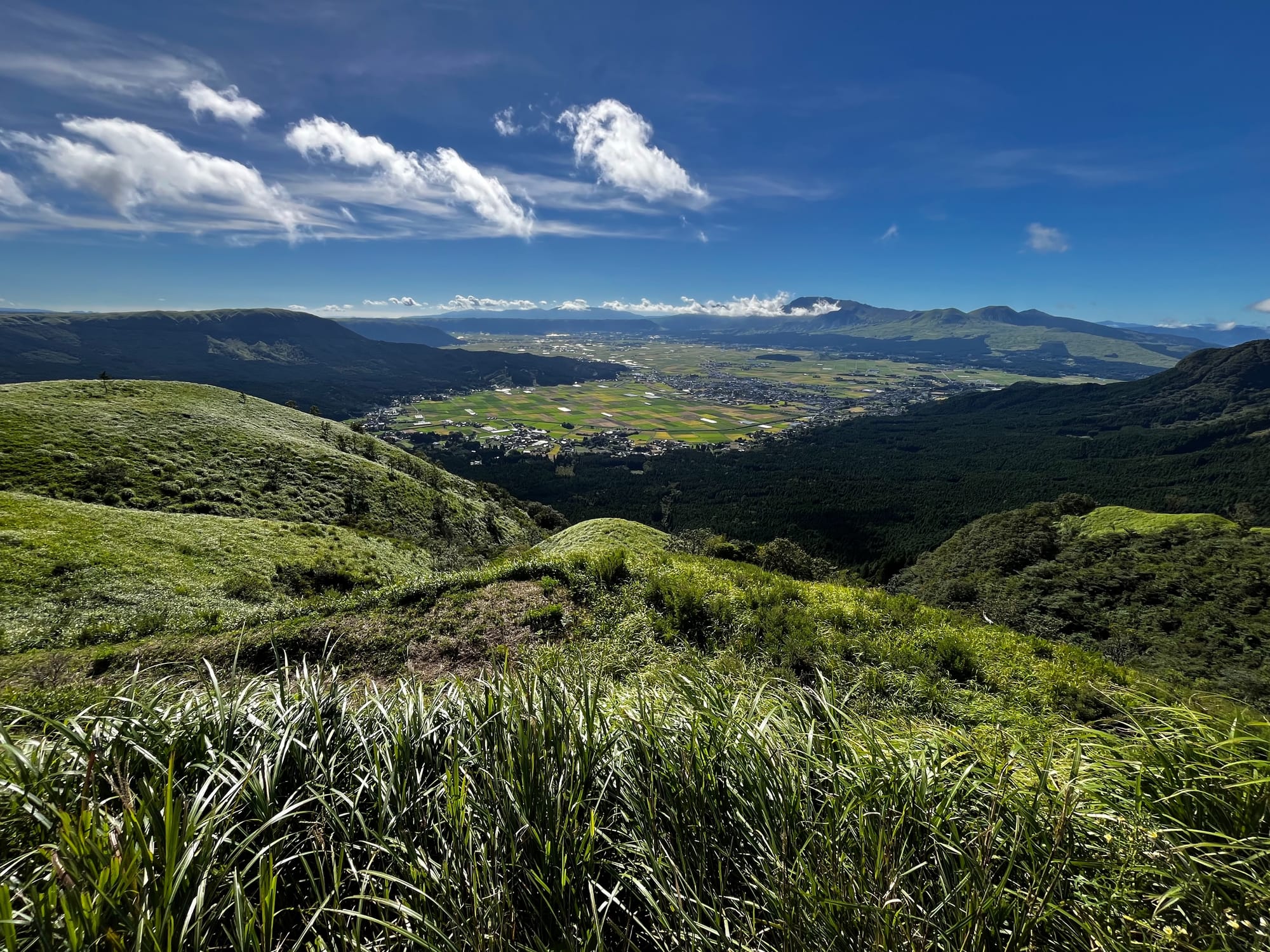
More photos from the journey will keep showing up here.